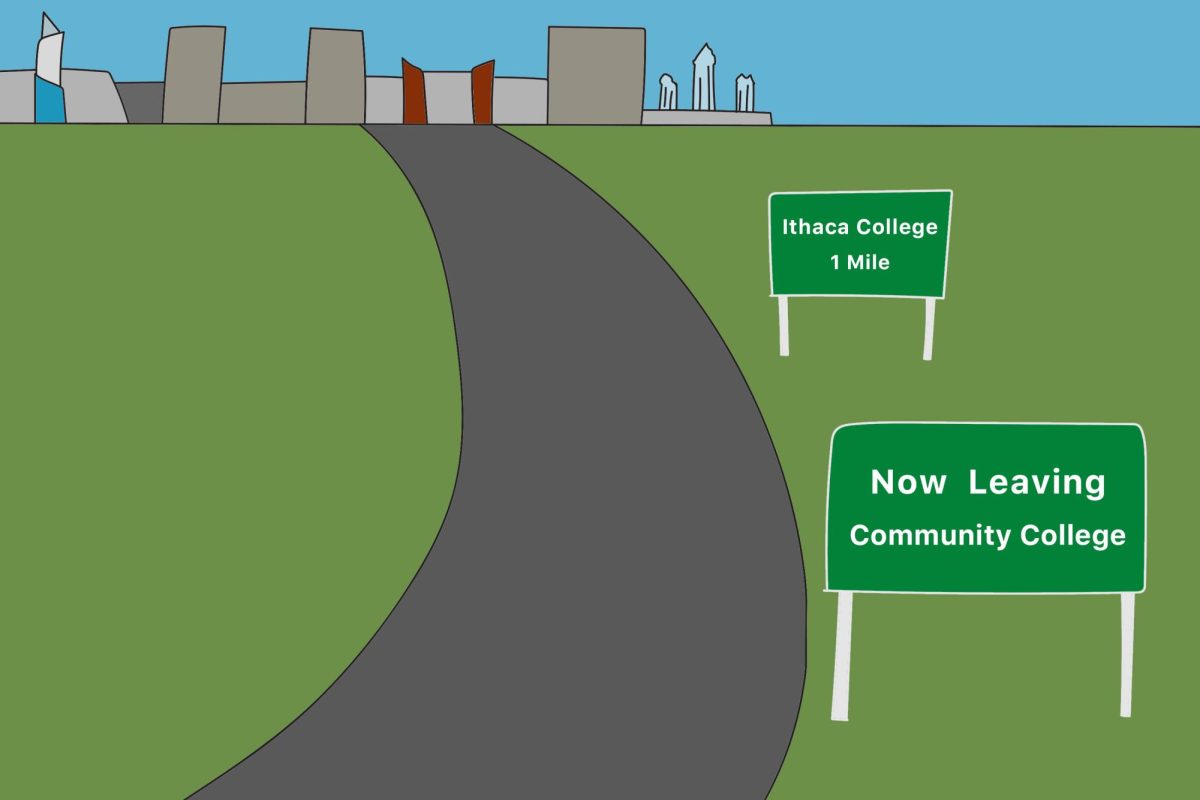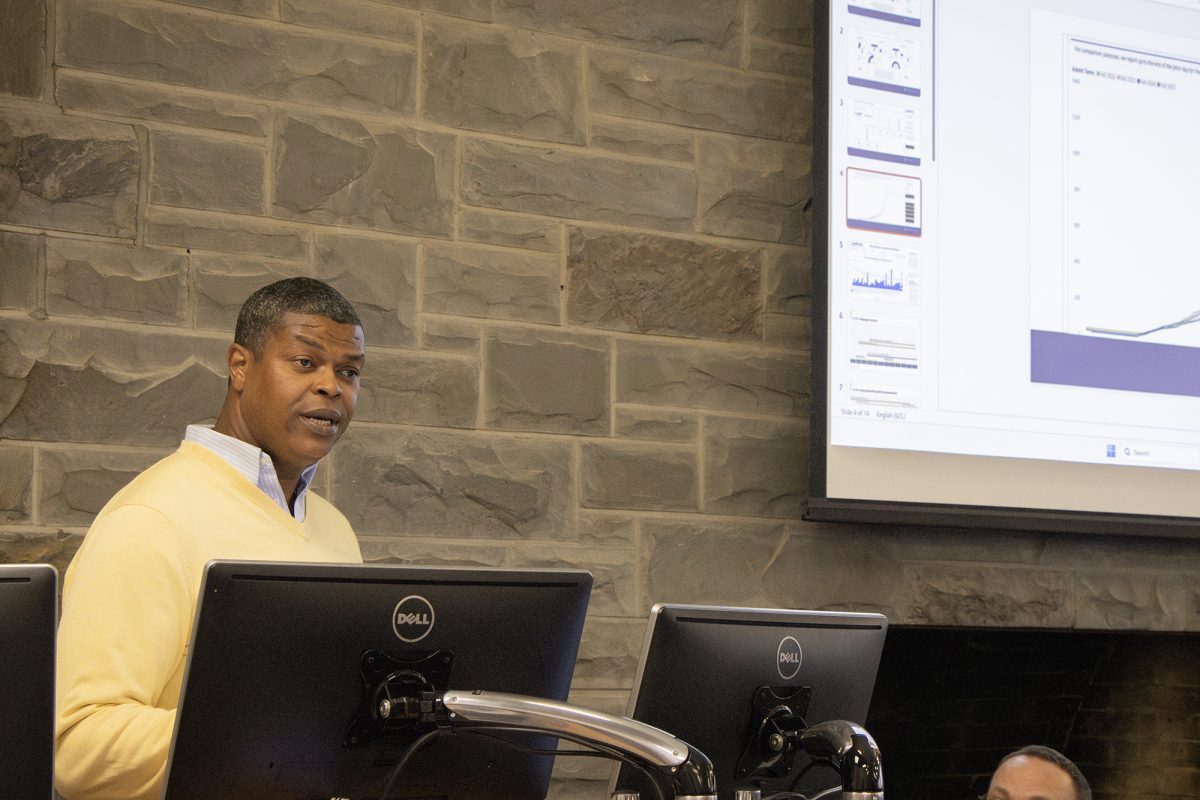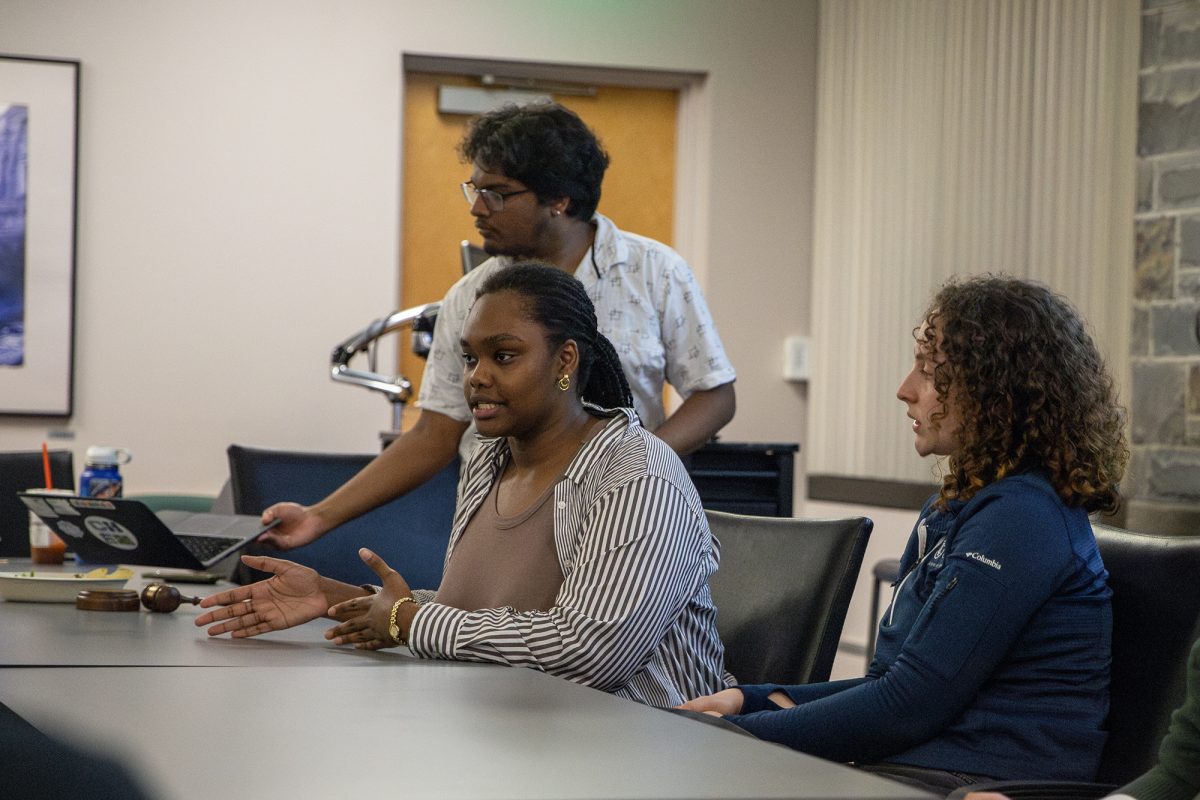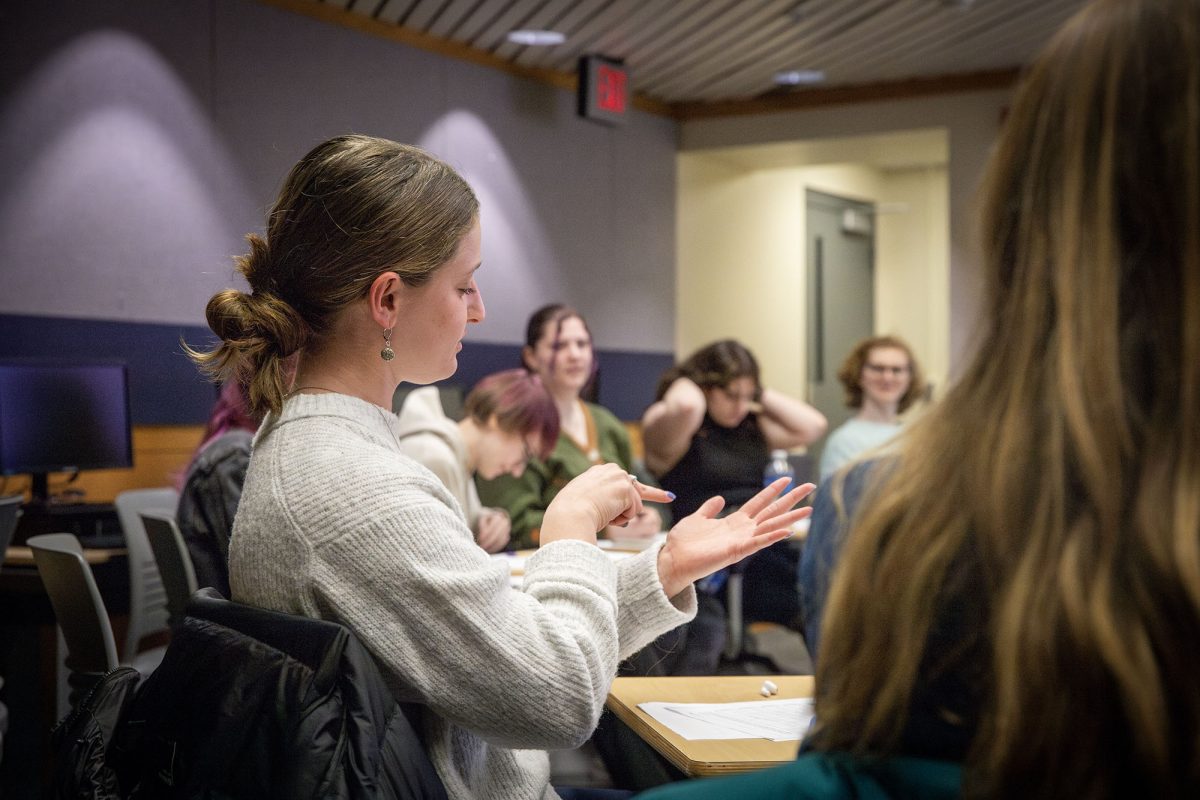Ithaca College is partnering with interested community colleges in New York state to develop transfer pathways for students who want to study for two years at a community college and transfer to Ithaca College to complete a degree.
The college is developing this initiative in partnership with the Commission on Independent Colleges and Universities in New York. The CICU is statewide and represents the public policy interests of chief executives of independent colleges while aiming to provide equity and access to higher education. In February 2022, the CICU received a $50,000 grant from the Teagle Foundation and the Arthur Vining Davis foundations to create more transparent and equitable transfer pathways for community college students to public and private universities in New York, specifically focusing on increased access to liberal arts education.
Shana Gore, interim associate vice president for enrollment and student success at the college, said the State University of New York’s transfer pathway system is well defined, but there has been little progress made for a formal process of transfer pathways to private institutions in New York until now.
Gore also said the process for transferring basic credits from the Integrative Core Curriculum is already in place through articulation agreements, but transfer pathways will also allow students to receive credit for more major specific classes at a community college.
“That was the first decision point, [was] if [the college] wanted to be a part of the group,” Gore said. “Where we are in the process now is trying to identify the programs that would be the best fit for transfer programs.”
Paul Nelson, director of communications and external relations at the CICU, said via email that the CICU is creating partnerships with 55 participating member institutions and community colleges in New York through the NY Transfer Initiative Planning Grant.
Nelson said the goal for the CICU is to use the grant to find ways to strengthen recruitment, retention and student persistence to a degree for both community colleges and four-year independent institutions.
“The 55 institutions that participated are committed to improving and innovating more equitable, transparent and expansive transfer practices for students,” Nelson said via email.
Gore said some programs at the college — like majors in the School of Music, Theater, and Dance — are not flexible with pathways and require a full four-year program, but there are other programs at the college that are compatible with transfer pathways.
“Some of the ones we’re looking at are history, biology, sociology [and] psychology,” Gore said. “Based on the way those programs are designed, many of those electives could have been completed at community college.”
Gore said that transfer pathways are a great opportunity for students to have more choice when choosing a higher education plan and that there are many reasons students start at a community college.
“For some it’s a financial decision, for some it’s a location [decision],” Gore said. “They may not be ready to move from their home to come to Ithaca. It could be an academic issue where maybe academically they did not meet the requirements.”
Gore said that once the college has identified what programs that can be offered as transfer pathways, the CICU will match up community colleges that have a need for students to move into the programs that are offered at Ithaca College.
“We are hoping that by Fall [2024], we can have at least one pathway with one [community college] in place,” Gore said. “After that, we’ll work on building out a timeline further to think about when we could bring other schools in [to] other programs.”
Senior Ashlyn Darpino is majoring in voice with an outside field in integrated marketing communications. Darpino said she started at SUNY Broome community college and attended for one year. She said she was able to receive more transfer credits at Ithaca College than any SUNY school she was accepted to, but the process of transferring during the pandemic was extremely difficult.
Darpino said the only communication she remembers receiving prior to the semester starting was an invitation to a virtual tour and once she started, she only had her voice teacher to guide her. She said that during Fall 2020, she was a part-time student and in Spring 2021, she started attending the college in-person and full-time as a commuter student.
“I’m really glad I didn’t live on campus because I would have lost my mind,” Darpino said. “I had no orientation, I didn’t know where anything was. I think it was about two months into that semester where I finally made friends who had to do all this stuff for me. I was living off of granola bars because I had no idea I was allowed to eat there. … I didn’t even have a student ID until halfway through that semester.”
Darpino said institutions do not realize that even though transfer students are coming in as sophomores or juniors, they still have the same amount of knowledge of the institution that first-year students have.
“I think communication really is the biggest thing because I feel like so many of my personal issues would have been solved with anyone communicating with me,” Darpino said. “Creating a transfer community [would be great] because everyone I have talked to who’s transferred to Ithaca has felt very isolated.”
Gore said that planning for transfer pathways is a collaborative effort involving the Office of the Registrar to plan the transfer credit process, various schools and majors at the college to plan programs and pathways, and the Center of Student Success to ease the transition for community college students.
Shadayvia Wallace, director of the MLK Scholars and First Generation Programs, said that utilizing the Center of Student Success, communicating with prospective transfer students about the application and registration process and getting students acclimated to the campus community will be important for student success.
“A lot of folks as transfer students sometimes feel intimidated because everybody has their friend groups already established from their freshman year,” Wallace said. “Trying to make sure they have that connection, the resources and knowing the people on campus is going to be important.”
















